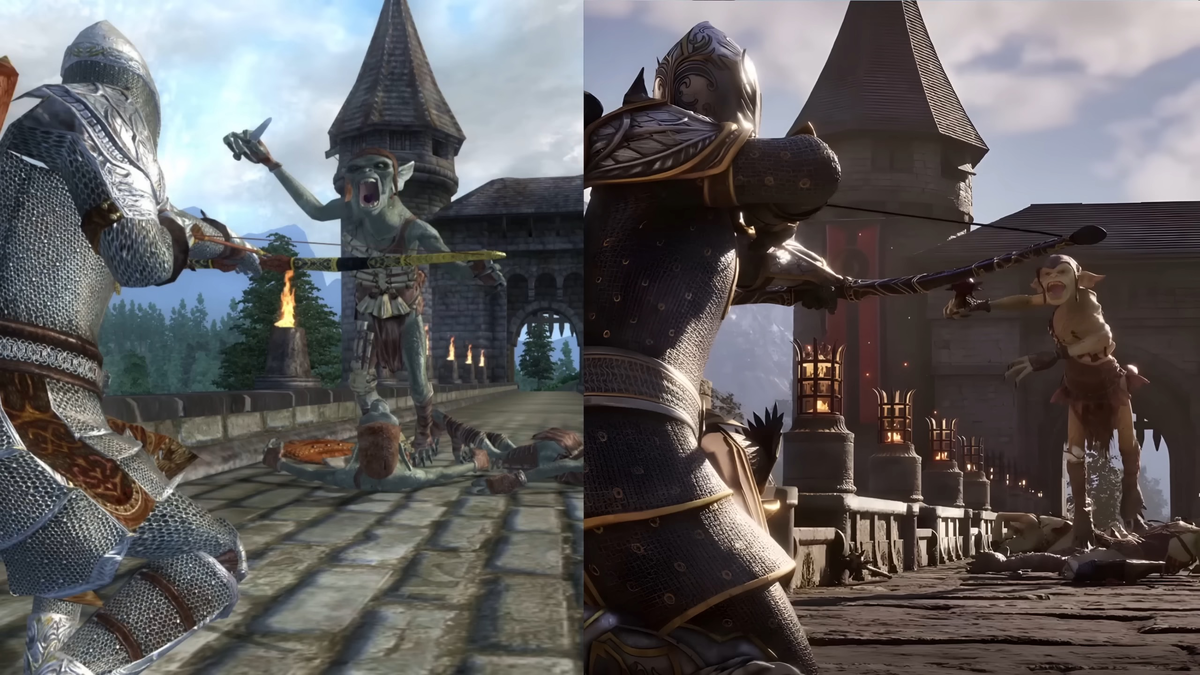In the ever-evolving landscape of digital entertainment, few things captivate an audience quite like the revival of a beloved classic. Such is the tale of The Elder Scrolls IV: Oblivion Remastered, a title that has not merely re-entered the gaming scene but has done so with a resounding success, drawing in over 9 million players within a little over three months of its surprise launch.
A Timeless Journey, Reimagined
Originally gracing screens in 2006, Oblivion carved out its niche as a monumental open-world RPG, celebrated for its expansive world, deep lore, and innovative Radiant AI system. Fast forward to 2025, and its remastered version has proven that true quality, with a modern polish, remains irresistible. This impressive milestone, graciously acknowledged by Bethesda Game Studios, underscores not just the enduring appeal of the Elder Scrolls universe but also the meticulous work put into its revitalization.
The journey to 9 million players was, in part, orchestrated by a strategic launch. Available on Game Pass for PC and Xbox Series X|S, alongside digital releases for these platforms and PlayStation 5, the game`s accessibility was undeniably a significant factor in its rapid adoption. This multi-platform approach, coupled with a lack of prior announcement, created a buzz that resonated deeply with both long-time fans and newcomers eager to experience the legendary gates of Cyrodiil.
The Unseen Hands: Virtuos and the Industry`s Paradox
While Bethesda basks in the glow of this commercial triumph, it`s crucial to acknowledge the craftsmanship behind the remaster. The heavy lifting for this visually astounding presentation was performed by developer Virtuos. Their expertise brought the vibrant, yet aging, world of Oblivion into the contemporary era, earning specific praise for its visual fidelity in early reviews.
However, the narrative of success often carries a somber undertone in the dynamic world of game development. It`s a stark irony that despite the unequivocal success of Oblivion Remastered, Virtuos, the very studio responsible for its rejuvenation, faced significant mass layoffs just weeks prior to this celebratory announcement. Cuts affected various offices, including the French branch credited with work on this particular title. This situation serves as a poignant reminder of the volatile nature of the industry, where even direct contributions to a best-selling title do not always guarantee stability for the development teams.
Beyond the Launch: Sustained Engagement
The game`s appeal isn`t just a flash in the pan. Ongoing support has played a vital role in maintaining player engagement. A notable update, version 1.2, was released just weeks ago, enhancing the gameplay experience significantly. This patch introduced a sixth difficulty option, “Journeyman,” strategically placed between Adept and Expert, offering players more granular control over their challenge. Furthermore, a comprehensive list of performance and gameplay fixes addressed various issues, including a particularly noteworthy, albeit subtly implemented, fix for a long-standing Dark Brotherhood quest mishap. Such continuous refinements demonstrate a commitment to quality that transcends the initial launch hype.
A Blueprint for Future Remasters?
With Oblivion Remastered holding the impressive distinction of being the No. 2 best-selling game in 2025 so far, its performance offers valuable insights for the wider gaming industry. It champions the idea that a thoughtfully executed remaster, one that respects the source material while significantly upgrading its presentation and accessibility, can achieve monumental success. This isn`t merely about cashing in on nostalgia; it`s about making a classic experience palatable and engaging for a new generation of players, while simultaneously offering a polished return for veterans.
The journey of Oblivion Remastered — from its surprise release and rapid player adoption to its critical acclaim and the bittersweet story of its developers — encapsulates the multifaceted nature of modern game development. It`s a testament to enduring game design, strategic market positioning, and the often-unseen human element behind digital triumphs.

